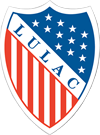Lulac Overview Scholarship History– Council 754
OUR HISTORY AND STRATEGY OBJECTIVES
The Northwest Arkansas League of United Latin American Citizen, Council 754, a 501 c4, was established in February 2001 to provide economic equality to Hispanics in the area. The greatest area which needed immediate attention was access to higher education allowing northwest Arkansas to grow its own Hispanic professionals. An annual event was established to raise funds for scholarships and continues today with great success. Additionally, Apoyo Latino was launched, creating a 501c3 whereby donors could claim their contributions as tax-deductible.
NWA LULAC Council 754 was founded by a group of concerned professionals in the area that wanted to improve the lives of the Hispanic population. Today, we cover NWA(North West Arkansas) and the River Valley – Fort Smith regions.
LNESC(LULAC National Education Service Centers) and LULAC established the LNSF(LULAC National Scholarship Fund) to help youth in underserved communities make the dream of college or postsecondary school’s enrollment a reality. LNSF is a unique partnership between grassroots advocates, nonprofit organizations, corporations and other entities to educational opportunities for deserving youth across the U.S. Every dollar raised by local LULAC Councils is matched by corporate partners secured by LNESC (LULAC National Education Service Centers) to increase the amount given in both the council and corporation’s name. This model results in a true grassroots/corporate partnership for the empowerment of the Latino community. Former recipients of LNSF scholarships are now leaders in fields of business, science, government, and education.
The program needs continued funding for sustainability and to keep the programs developing our future leaders. We will educate our Hispanic students at the onset of their high school years and continue to mentor them for higher education and/or life after their graduation. We hope that companies can provide internships at the university or technical school levels. At the same time, we want leaders to create companies and to provide a diverse economic growth in our community and to have a strong relationship with the mature companies in our area.
Apoyo Latino- LULAC Group is committed to an environment in which all individuals are treated with respect and dignity. Everyone has the right to volunteer in a professional atmosphere that promotes equal opportunities. Therefore, Apoyo Latino- LULAC Group expects that all relationships among persons in the office/group will be business-like and free of bias. The local council could work as a true academic non-profit organization while maintaining educational values of LULAC and match national funds if Apoyo Latino is able to collect community money for our students.
LULAC AWARD EVALUATION CRITERIA
(Grade each category on a scale of 1 to 10; ten being the highest)
We have 5 areas to evaluate our applications:
I. Academic Record: Assess the applicant’s academic performance based on applicant’s grade point average (GPA), SAT/ACT test scores, school transcript, honors, and awards. Pillar’s Academic Program will be included here.
II. Writing Ability: Rate the applicant’s essay based on content, style, personal goals, and professional goals.
III. Financial Need: Assess the applicant’s need for financial assistance based on financial data reported.
IV. Extracurricular Activities/ Programs:Assess the student’s involvements outside of school based on the applicant’s list of activities and personal essay.
Pillar’s elements will be integrated to these criteria. At the same time, any school can participate without having our pillar’s program. We want to show any High School or College that these elements can be universal or common denominator for any programs (example: develop emotional mature students, tutoring, studying habits, club member involvements, develop social skills, High School Advocate Student Risk Program, Physical(disability) and Social Development, Multi- Cultural Development, Financial Literacy, etc.)
Community Involvement: Assess the applicant’s degree of involvement within their community based on applicant’s list of activities and personal essay.
